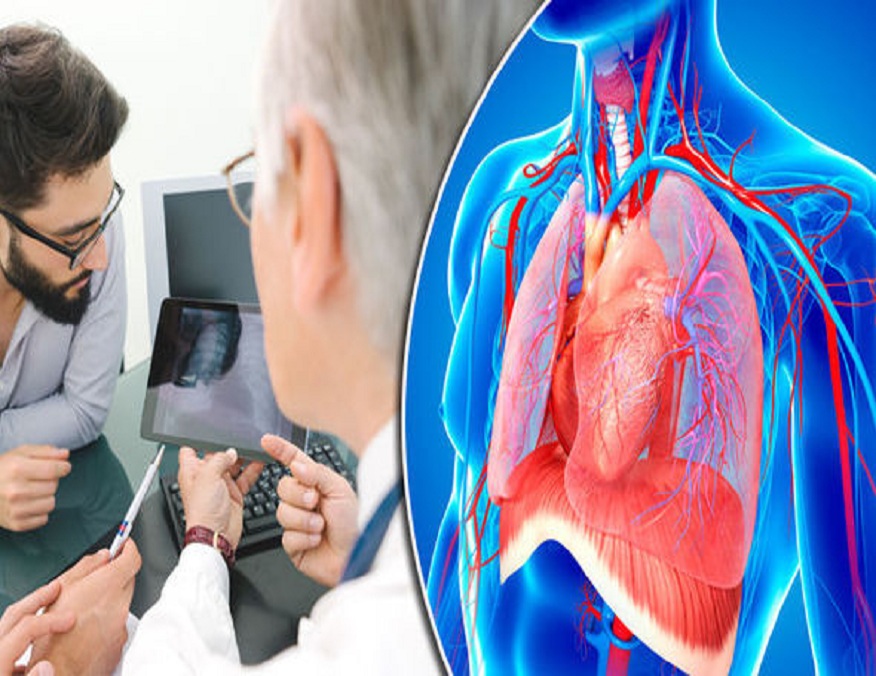Chest infections and pneumonia can pose significant health risks, particularly if left untreated. Understanding the causes, seeking appropriate treatment, and adopting preventive measures are crucial in managing these respiratory conditions.
In this blog, we will explore the causes, treatment options, and prevention strategies for chest infections and pneumonia. Additionally, we will discuss the importance of consulting a pneumonia specialist in Manchester or a nearby location for accurate diagnosis and expert care.
What are Chest Infections and Pneumonia?
Chest infections refer to infections that affect the respiratory system, primarily the lungs and airways. Pneumonia, on the other hand, specifically refers to an infection that inflames the air sacs in the lungs. While all types of pneumonia are chest infections, not all chest infections are pneumonia. Understanding these distinctions is vital in comprehending the severity and treatment approaches for these conditions. Both chest infections and pneumonia can cause breathing difficulties and impact overall respiratory health.
Causes of Chest Infections and Pneumonia
Chest infections and pneumonia can be caused by various pathogens, including bacteria, viruses, and fungi. Common bacterial culprits include Streptococcus pneumoniae and Haemophilus influenza, while viruses such as influenza and respiratory syncytial virus (RSV) can also trigger these conditions. Fungal infections, though less common, can occur in individuals with weakened immune systems. Additionally, several risk factors can increase susceptibility, including age, weakened immune system, smoking, chronic lung diseases, and exposure to environmental pollutants.
Treatment Options
When it comes to treating chest infections and pneumonia, the approach may vary depending on the underlying cause and the severity of the condition. Here is a more detailed elaboration on treatment options:
Antibiotics for Bacterial Infections
Bacterial pneumonia is commonly treated with antibiotics. The choice of antibiotic depends on factors such as the type of bacteria involved, the patient’s age, medical history, and any potential antibiotic allergies. Chest infection specialist Manchester or healthcare providers will prescribe the most appropriate antibiotic to target the specific bacteria causing the infection. It is important to complete the full course of antibiotics as prescribed, even if symptoms improve, to ensure complete eradication of the infection.
Antiviral Medications for Viral Infections
In cases where the chest infection or pneumonia is caused by a viral infection, such as influenza or respiratory syncytial virus (RSV), antiviral medications may be prescribed. These medications are designed to inhibit the replication of the virus and help reduce the severity and duration of symptoms. Antiviral treatment is most effective when initiated early, so it is important to consult a healthcare professional promptly if a viral infection is suspected.
Supportive Care Measures
Supportive care plays a crucial role in the treatment of chest infections and pneumonia. It focuses on relieving symptoms, promoting recovery, and preventing complications. Supportive care measures may include:
- Rest: Give the body ample time to recover by getting plenty of rest and avoiding strenuous activities.
- Hydration: Drinking an adequate amount of fluids, such as water or warm beverages, to stay hydrated and help thin mucus secretions.
- Over-the-Counter Pain Relievers: Medications such as acetaminophen or ibuprofen may be recommended to alleviate fever, pain, and discomfort.
- Inhalation Therapy: Inhaled medications, such as bronchodilators or corticosteroids, may be prescribed to help open up the airways and ease breathing.
- Oxygen Therapy: In severe cases, supplemental oxygen may be administered to ensure sufficient oxygen supply to the body.
Prevention Strategies
Prevention is key in reducing the risk of chest infections and pneumonia. Vaccinations are available for common pathogens, such as pneumococcal and influenza vaccines. Practising good hygiene, including regular handwashing, covering the mouth and nose when coughing or sneezing, and avoiding close contact with infected individuals, can help reduce the risk of transmission. Additionally, adopting a healthy lifestyle, including regular exercise, a balanced diet, and avoiding smoking, can enhance respiratory health and lower the susceptibility to respiratory infections.
When to Consult a Chest Infection or Pneumonia Specialist
It is important to seek medical attention from a pneumonia specialist in Manchester or a nearby location if experiencing symptoms of a chest infection or pneumonia, especially if they worsen or persist. Pneumonia specialists possess specialized expertise in managing complex cases and can provide accurate diagnoses, tailored treatment plans, and ongoing monitoring. Finding a qualified specialist can be done by consulting primary care physicians, and local healthcare providers, or referring to online directories and resources by searching for “pneumonia specialist near me.”
Conclusion:
Chest infections and pneumonia can have serious implications for respiratory health, but understanding the causes, seeking appropriate treatment, and adopting preventive strategies can help mitigate these risks. Consulting a pneumonia specialist in Manchester or nearby is crucial for accurate diagnosis and expert care. By taking proactive measures and staying informed, we can work towards maintaining optimal respiratory health and reducing the impact of these conditions on our well-being.




